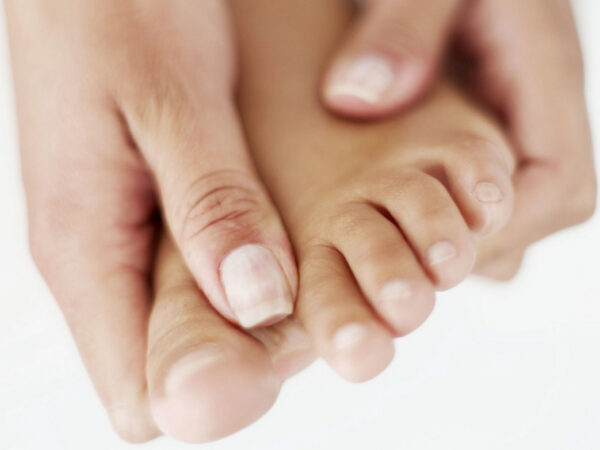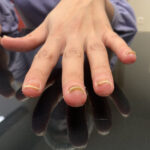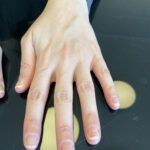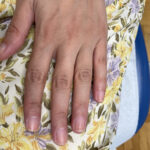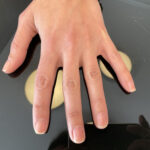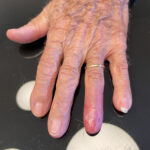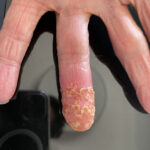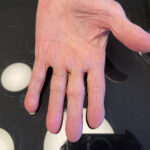Nail psoriasis is a chronic condition that affects the fingernails and toenails, causing them to become thicker with discoloration (green, yellow) and even detach from the nail bed. This image is often misinterpreted as mycosis when it is not. Traditional treatments include topical treatments and
systemic drugs (pills), but these options often have limitations.
With the introduction of biological drugs – we have a new proposal in the treatment of nail psoriasis that offers clear advantages and encouraging results.
What are biological agents?
These are proteins designed to target specific parts of the immune system that play a role in inflammation, a key factor in psoriasis. Targeting her
immune response at its source, these agents are highly effective without causing immunosuppression.
- IL-17 inhibitors: IL-17 plays a role in inducing and promoting inflammatory responses in psoriasis.
- IL-23 inhibitors: IL-23 is another cytokine involved in the inflammatory process of psoriasis.
These drugs have been shown to be safe and effective treatments for psoriasis on the skin, scalp and nails.
Biological drugs are drugs derived from living cells. Unlike traditional systemic drugs that affect the entire immune system, biologics target specific parts of the immune system. This precision allows for a more effective treatment with fewer side effects.
How Do Biologics Work for Nail Psoriasis?
Biologic drugs work by targeting specific proteins that contribute to inflammation, one of the main drivers of psoriasis. By suppressing these proteins, biologics can reduce the symptoms of psoriasis, including those affecting the nails.
Benefits of Using Biologics
1. Specialized Treatment: Biologics offer a more specialized approach, reducing the risk of systemic side effects.
2. Fast Results: Many patients report visible improvements within weeks.
3. Long-term Results: Biologics offer long-term results, reducing the frequency, intensity and clinical picture of flare-ups. Most of the time we achieve a picture of complete cure of the disease (completely healed skin and nail) for many years, to a degree
that the patient has forgotten his illness. This greatly improves the patient's quality of life.
Who is a Good Candidate?
Biologics are usually recommended for moderate to severe cases of nail psoriasis that have not responded well to traditional treatments. Consult your doctor for a detailed evaluation.
Side Effects and Precautions
While biologics are generally well tolerated, they are not without risks. Rare side effects include infections and fatigue. It is vital that you discuss your medical history with your doctor to determine if biologics are an appropriate treatment option for you.
Conclusion
Biologic drugs are a major advance in the treatment of nail psoriasis. With their specialized approach and fewer side effects, they offer an encouraging alternative to traditional treatments.

